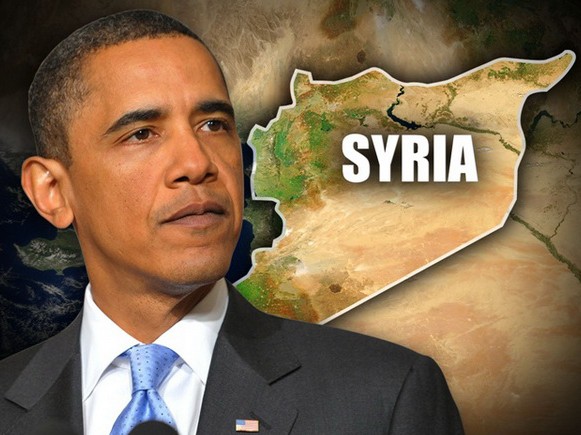President Barack Obama came into office in 2009 with roughly 180,000 Americans fighting insurgencies in Iraq and Afghanistan. By the time of Obama’s inauguration, the death toll had reached almost 5,000 U.S. servicemen and women killed in action (KIA). The 44th President of the United States was elected to put an end to the “long war” of the Bush era and reorient U.S. defense policy away from large-scale U.S. military engagements abroad to smaller scale operations and focus on “national building at home.”

While Obama underlined in 2011 that, “the tide of war is receding,” more than 2,500 U.S. troops were killed during the eight years of his administration—over two-thirds of KIA occurring in Afghanistan as a result of a 33,000-strong troop surge the president had ordered in 2010 to defeat the insurgency. (There are currently around 9,000 U.S. troops remaining in Afghanistan.) Although the president pledged to get the United States off its wartime footing, the Pentagon’s war-related expenditures have in fact increased from approximately $811 billion under George W. Bush to $866 billion under Obama.
Since taking office, Obama has also increased the number of special operations forces deployed abroad—according to some estimates, U.S. special operations forces are deployed in over 130 countries—and substantially stepped up a campaign of airstrikes (primarily executed by drones) against terrorists in Pakistan, Somalia, and Yemen. Furthermore, the Obama White House has ordered troops into Cameroon, Uganda, Syria, and Iraq, even after withdrawing all troops from the country seven years ago (around 5,000 U.S. troops are currently stationed there.)
Over the last eight years, Obama has clearly shown a preference for small-scale operations using airstrikes and special operations forces rather than the large-scale deployment of regular troops. For one thing, he did not wish to overextend U.S. resources. Another motivation behind this preference is a desire to minimize U.S. military and civilian casualties. However, an additional impetus is a deep-seated skepticism of military force. President Obama, according to a number of his closest advisors, strongly believes that military power, no matter how wisely used, can never be completely controlled.
It is this realist understanding of the nature of war that perhaps will be the president’s most prominent legacy, influencing generations of policy makers as they weigh in on the use of U.S. military power abroad.
With his general skepticism towards the use of military force, Obama followed in the footsteps of two other American presidents, Dwight D. Eisenhower and George H. W. Bush—both moderate Republicans. The three presidents share a belief that large-scale U.S. military action is only permitted if a situation abroad poses a direct security threat to the United States. Their understanding is based on four principles:
First, while the United States is the most powerful country in the world, its resources are not unlimited when it comes to military expenditure and war. Second, there has to be a clear prioritization of U.S. interests underlined by a belief that “America goes not abroad, in search of monsters to destroy,” on the basis of which decisions over war and peace should be made. Third, as a result of this focus on U.S. national interests, American troops should not be deployed abroad to prevent humanitarian disasters unless they directly impact the national security of the United States. Fourth, the United States should only go to war when it has a chance of winning a total victory and a clear exit strategy.
Underlying the four assumptions above is a realist understanding of the capricious nature of war paired with a recognition of human fallibility that should make a leader exercise military power with great care. Generals and politicians always make mistakes; however, they are more consequential in times of war and commonly irreversible. Military conflict is inherently unpredictable and unleashes forces that often cannot be controlled even by the world’s strongest military power. The unintentional consequences of military action can even increase the suffering of a people. “War promises human tragedy,” Obama succinctly warned in his 2009 Nobel Price speech.
“War is a stern teacher,” as Thucydides correspondingly noted over 2,000 years ago. This still holds true in our age, as the United States has seen in Korea in the 1950s, Vietnam in the 1970s, and Iraq and Afghanistan in the 2000s when it repeatedly found out that it is easier to start than to end military conflict. War limits policy choices. A president often finds himself trapped with little wiggle room, where sooner or later the choice will be between the lesser of two evils, which undermines a country’s moral authority (e.g., Abu Ghraib and Guantanamo Bay).
Thus, if it all possible, military conflict should be avoided and should never be the default option, the 44th President of the United States believes. Or in the words of Barack Obama in late 2015: “American strength and American exceptionalism is not just a matter of us bombing somebody.” This simple idiom is often forgotten among more traditionally minded policy makers in Washington DC who over the past eight years have repeatedly pushed for a more militarized U.S. foreign policy.
“There’s a playbook in Washington that presidents are supposed to follow. It’s a playbook that comes out of the foreign-policy establishment. And the playbook prescribes responses to different events, and these responses tend to be militarized responses. Where America is directly threatened, the playbook works. But the playbook can also be a trap that can lead to bad decisions,” Barack Obama commented in an interview with The Atlantic last April.
With his skepticism towards military solutions when dealing with complex foreign policy problems, Barack Obama rebuffed to use the playbook and has defied established thinking of the D.C.-based foreign policy community on the use of military force. And while he is not against all wars, he is decidedly against “dumb ones,” as he once put.
It is up to history to prove him right or wrong on this matter.
“War must be an option sometimes, but it should never be the first option,” Obama famously said at the 2004 Democratic Convention in Boston. The president repeatedly, throughout his two terms, tried to point out the limits of military power as an instrument of state policy, as Derek Chollet recounts in his book The Long Game informed by the understanding that war is sometimes “necessary but always tragic.”
While Barack Obama did not manage to extricate the United States out of the many conflicts it is currently engaged in, he nevertheless is leaving behind a dose of doubt for the next generation of policy makers about the utility of the use of military force under certain circumstances. It remains to be seen whether the Obama doctrine on war will have any impact on the incoming administration. Judging from the Trump administration’s nascent rhetoric on the subject, it appears more than unlikely.

